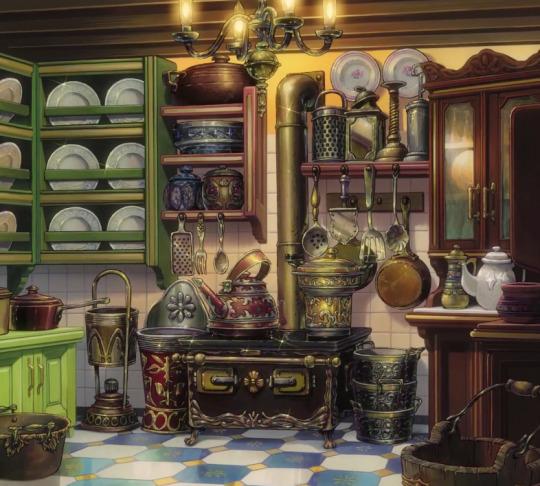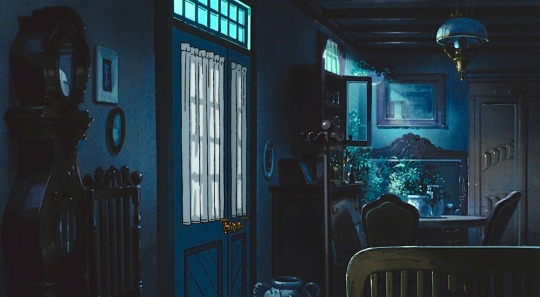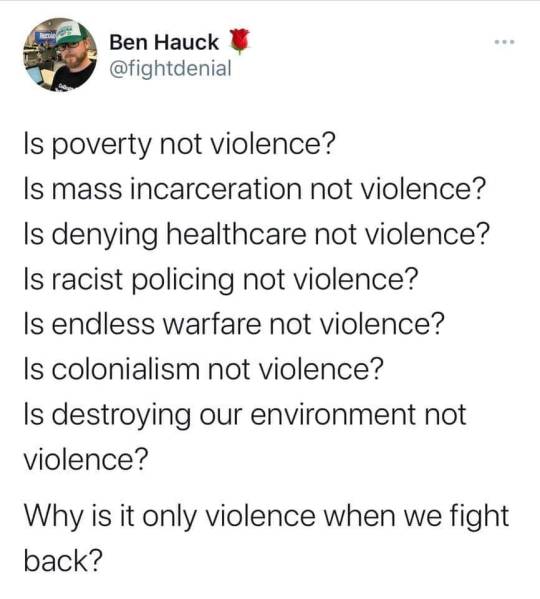Don't wanna be here? Send us removal request.
Text
Resources for Mending Clothes

We toss out over 80 pounds of textiles each year. These textiles are often made of plastic materials (polyester, nylon), made in unethical conditions, dyed with harsh dyes that often get put into the rivers, etc. Even a single cotton shirt releases carbon emissions and uses tons of water.
So the best thing to prevent the unsustainable growth of the fashion industry is to make sure that your clothing lasts as long as possible. To do so, mending clothing is a must. So here are some resources to help you learn how to do various things, such as sewing a button, to tailoring clothes, or even upcycling old clothing into new styles.
* How to sew on three different types of button
* How to hand sew on a patch on a torn pair of jeans
* How to sew up a hole in an old shirt
* How to sew a simple T-shirt
* How to upcycle old clothing into new clothing
* More upcycle and sewing techniques
* How to repair a damaged sock
* How to do an invisible stitch
* 3 different stitches to work with for different results
* How to make a T-shirt smaller so it fits you better
* How to make repairs to your shoes
These are just a few of the things that you can do in order to make sure that your clothing lasts for a long time. Nobody wants to keep buying new clothing, as it is expensive and wasteful.
So making alterations to your clothing, or fixing small holes hen you see them can be hugely beneficial to your wallet, to garment workers, and to the environment in the long term.
***
If you like what I write, consider buying from:
My Etsy shop for upcycled bags, jewelry, and crafting supplies.
Or
My poshmark for reclaimed clothing.
106K notes
·
View notes
Photo

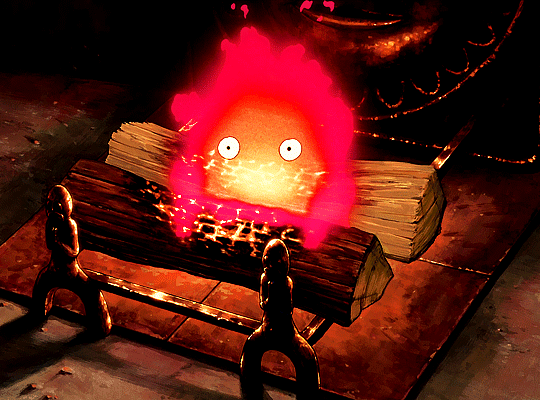


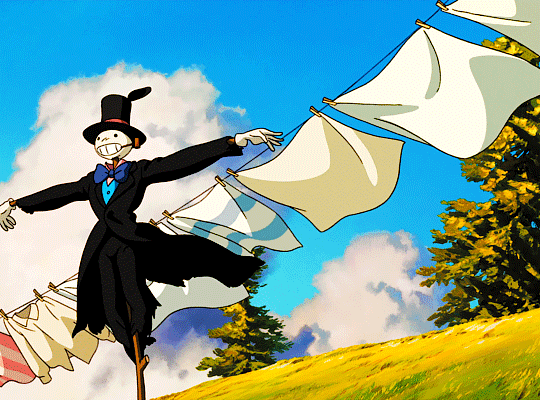
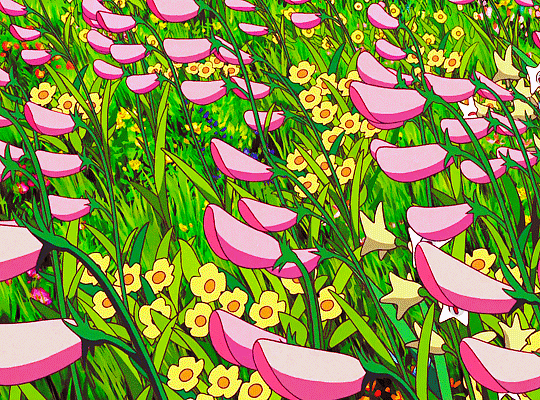



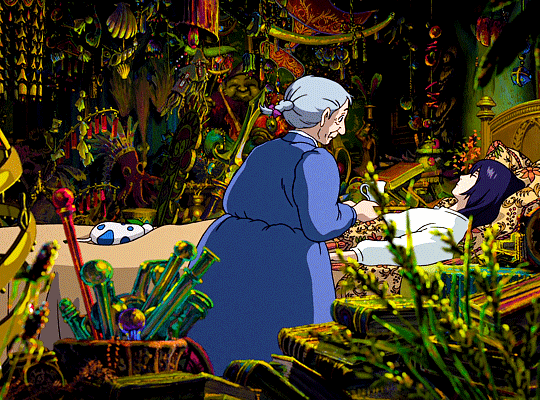
HOWL’S MOVING CASTLE ハウルの動く城 / 2004 dir. Hayao Miyazaki + cottagecore
11K notes
·
View notes
Photo
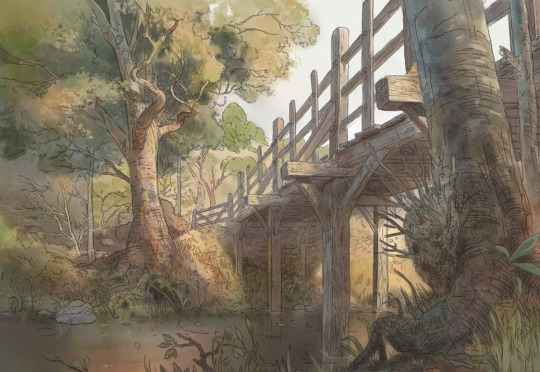




Production art from Winnie the Pooh by Art Director Paul Felix
28K notes
·
View notes
Text
what to do instead of calling the police •
here’s a thread by user a_busy_woman on twitter
„take a community class on how not to call the cops and how to deescalate [...]“
all the links in the thread
handbook for alternatives to calling the police by the UUA
the abolitionist toolkit by critical resistance
a meta resource put together by Aaron Rose
deescalation webinar on YouTube by Side with Love
a starter guide resource put together by twitter users literElly, sheabutterfemme, and MicahHerskind
bail fund for Minneapolis
34K notes
·
View notes
Text
should have elected Bernie because they're going to call the democrat a socialist no matter what


1K notes
·
View notes
Photo

In a sane country, Bernie would be the centrist candidate.
Addressing climate change
Enacting a Medicare For All single-payer healthcare system thats priority is keeping people well, not profiting from human suffering
Increasing minimum wage to a living wage of $15 dollars an hour
Ending endless wars
Etc…
These are not “radical/extreme” policies. Bernie was advocating for a common sense social democracy that is already a reality in other countries.
Start calling politicians that don’t support everyone having healthcare during a pandemic “radical/extreme”, and maybe we’ll get somewhere…
2K notes
·
View notes
Text
If you are a member of any left party - green, salt, or otherwise… this is my serious recommendation.
Refocus your participation so that at least half of your work is community service, rather than wasting all your time on electoral politics.
Stop selling newspapers, stop knocking on doors, stop calling people, stop arguing online, stop trying to convert liberals…
Go outside. Clean a street, volunteer, feed the poor, protect the homeless, do errands for the elderly and disabled, create carpools, community gardens, free libraries, and so on. Make projects that good-willed people will want to involve themselves in (and likely fund) even if they themselves are not members of your party.
Show the world that your group is here to promote the wellbeing of the community. You can still put your party logo somewhere - and people will begin to associate it with your volunteer projects, something far more impactful than any television advertisement.
If the local 4H group is doing more for the community - you have a serious problem.
Any media your party produces should focus on the good you are doing in various communities - any mention of particular political candidates should be secondary. When an election is over and your candidate loses, everyone will forget your candidates name. No one is going to watch the campaign videos after that election is over. Videos about community projects however - about what the problem is and how you are helping to fix it - those remain relevant even after the election is concluded.
Finally any political organization that focuses primarily upon it’s leadership is one at risk of becoming a cult. Yes this means that almost every mainstream political party is in effect a cult. Stop trying to model yourself after them.
8K notes
·
View notes
Text
Small Town Organizing for Anarchists
This zine contains a wealth of helpful suggestions for anarchists living in small towns who want to create anarchy. Topics covered include finding other anarchists, deciding on what projects to work on, figuring out how to relate to liberals, and doing a distro—this zine is full of good ideas and advice.
Not only for small towns, the authors of the zine state: “If you can count the active anarchists in your areas on your fingers, this guide is for you.”
Read more…
Lots of people have been asking me how to get organized if they live in a rural area, or just anywhere without an active scene. Just stumbled upon this, hopefully it helps. Affinity groups and collectives can make a huge impact in a small town if they can establish themselves successfully
2K notes
·
View notes
Text
“Gandhian tactics do not, generally speaking, work in the US. One of the aims of non-violent civil disobedience is to reveal the inherent violence of the state, to demonstrate that it is prepared to brutalize even dissidents who could not possibly be the source of physical harm. Since the 1960s, however, the US media has simply refused to represent authorized police activity of any sort as violent. In the several years immediately proceeding Seattle, for instance, forest activists on the West Coast had developed lockdown techniques by which they immobilized their arms in concrete-reinforced PVC tubing, making them at once obviously harmless and very difficult to remove. It was a classic Gandhian strategy. The police response was to develop what can only be described as torture techniques: rubbing pepper spray in the eyes of incapacitated activists. When even that didn’t cause a media furor (in fact, courts upheld the practice) many concluded Gandhian tactics simply didn’t work in America. It is significant that a large number of the Black Bloc anarchists in Seattle, who rejected the lockdown strategy and opted for more mobile and aggressive tactics, were precisely forest activists who had been involved in tree-sits and lockdowns in the past.”
— David Graeber, On the Phenomenology of Giant Puppets: Broken windows, imaginary jars of urine, and the cosmological role of the police in American culture
11K notes
·
View notes






